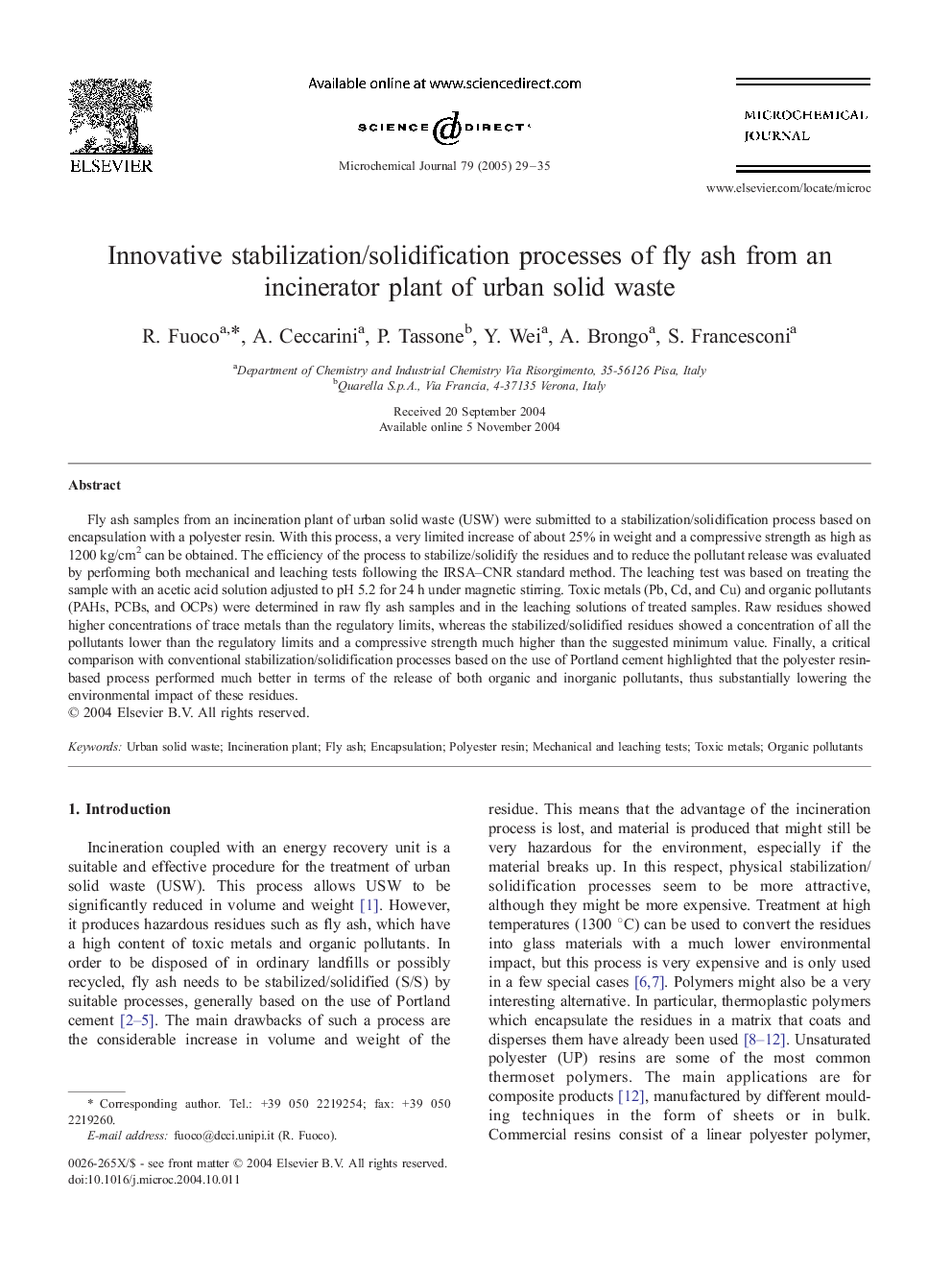| Article ID | Journal | Published Year | Pages | File Type |
|---|---|---|---|---|
| 9755012 | Microchemical Journal | 2005 | 7 Pages |
Abstract
Fly ash samples from an incineration plant of urban solid waste (USW) were submitted to a stabilization/solidification process based on encapsulation with a polyester resin. With this process, a very limited increase of about 25% in weight and a compressive strength as high as 1200 kg/cm2 can be obtained. The efficiency of the process to stabilize/solidify the residues and to reduce the pollutant release was evaluated by performing both mechanical and leaching tests following the IRSA-CNR standard method. The leaching test was based on treating the sample with an acetic acid solution adjusted to pH 5.2 for 24 h under magnetic stirring. Toxic metals (Pb, Cd, and Cu) and organic pollutants (PAHs, PCBs, and OCPs) were determined in raw fly ash samples and in the leaching solutions of treated samples. Raw residues showed higher concentrations of trace metals than the regulatory limits, whereas the stabilized/solidified residues showed a concentration of all the pollutants lower than the regulatory limits and a compressive strength much higher than the suggested minimum value. Finally, a critical comparison with conventional stabilization/solidification processes based on the use of Portland cement highlighted that the polyester resin-based process performed much better in terms of the release of both organic and inorganic pollutants, thus substantially lowering the environmental impact of these residues.
Keywords
Related Topics
Physical Sciences and Engineering
Chemistry
Analytical Chemistry
Authors
R. Fuoco, A. Ceccarini, P. Tassone, Y. Wei, A. Brongo, S. Francesconi,
